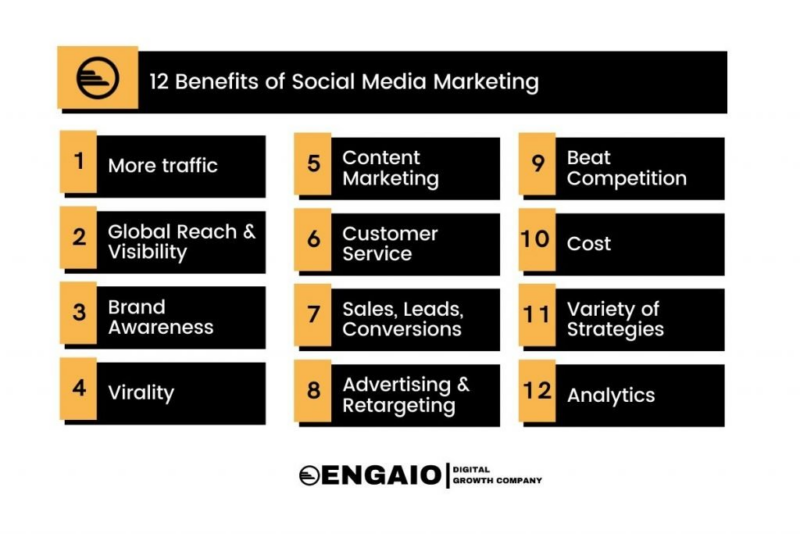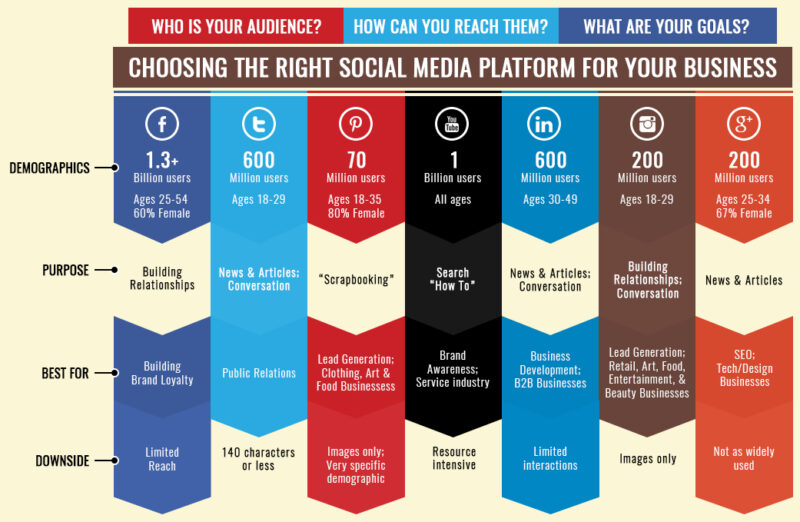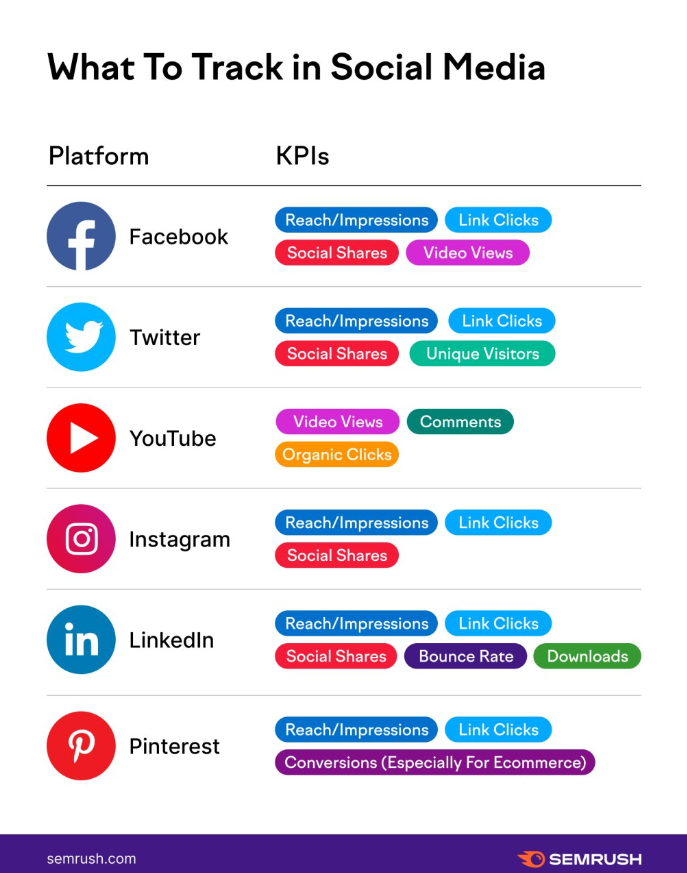As social media platforms like Facebook, Twitter, Tiktok, and Instagram grew in popularity, they changed not only how we interact with one another but also how businesses can influence consumer behavior. According to Statista, as of January 2023, Facebook was marketers’ most commonly used social media platform. The increased exposure of their brands and products, as well as the increased traffic to their websites, are just two of the many advantages of using social media platforms for business.

Managing a successful social media campaign takes more than occasional updates and posts. It requires a thorough understanding of various social media marketing tools, audience behavior, content production, and real-time monitoring. This complexity has led many businesses to explore outsourcing social media marketing as a strategic solution.
Outsourcing social media marketing is the practice of delegating a company’s social media activities to external agencies for administration, execution, and optimization. Rather than handling social media tasks internally, businesses work with professionals with the expertise, skills, and experience to develop and execute effective strategies.
In this article, we will explore the benefits of social media outsourcing, steps in successfully outsourcing, factors to consider, potential challenges in outsourcing social media marketing, and how to address these challenges.
Benefits of Outsourcing Social Media Marketing
Cost Savings
Outsourcing helps companies access a pool of talented social media professionals at a fraction of the cost of recruiting full-time staff with similar expertise. The outsourcing companies you engage with have expertise in dealing with multiple clients, making their service more cost-effective.
Many social media marketing agencies offer various pricing models, allowing businesses to select packages based on their budget and requirements. This flexibility allows them to manage their marketing expenses successfully.
Improved Customer Satisfaction
Customers always expect prompt responses, especially on social media platforms, where activities are 24/7. Outsourcing companies can offer 24/7 monitoring and support, ensuring customers receive assistance whenever needed. Outsourcing partners can proactively engage customers by initiating discussions, polls, and user-generated content campaigns. This strategy creates a sense of community and participation, increasing customer satisfaction.
Access to a Larger Pool of Talent
Social media marketing agencies often consist of teams with various skill sets and expertise. By outsourcing, businesses can tap into a larger talent pool of content creators, social media strategists, graphic designers, data analysts, and more. Their exposure to different industries through various clients provides them valuable insights into market trends, consumer behaviors, and industry best practices. This cross-industry experience can help businesses gain new perspectives and innovative ideas for their social media efforts.
Improved Efficiency
Social media management requires constant monitoring, content creation, and engagement with the audience. Outsourcing these tasks to a social media marketing agency enables businesses to focus on core activities and strategic decision-making. With the agency’s expertise in social media marketing, they can execute tasks efficiently, leveraging best practices and proven strategies.
Steps for Outsourcing Social Media Marketing Effectively
Define your data entry needs

Effective social media marketing starts with thoroughly understanding your customer service requirements. The level of assistance and engagement required to meet your customer’s expectations must be determined. Consider the following ways to determine your customer service needs:
- Analyze your target audience to determine which social media sites they use the most and what type of content resonates with them.
- Social media provides various communication channels, such as comments, direct messaging, and mentions. Determine which channels are critical to your business and the level of responsiveness required for each.
- Set clear response times for various types of inquiries or comments. Critical issues may require immediate responses, whereas general inquiries may have a longer response window.
- Establish the escalation procedure for complex or sensitive customer concerns. Ensure the outsourcing partner understands when to involve your in-house team in the resolution process.
Research Outsourcing Options
First, determine the social media marketing services you need, such as content creation, community management, paid advertising, analytics, or a comprehensive social media strategy. To effectively research outsourcing options, you may follow these steps:
- To find possible outsourcing partners, conduct an online search. Look for social media marketing businesses with a strong online presence or positive client reviews. You may also reach out to your professional network for recommendations. Their experience can lead you to reputable outsourcing agencies.
- Check whether the outsourcing companies have relevant certifications or affiliations with industry organizations. These indicate their commitment to professionalism and keeping up with industry best practices.
- Set up consultations or meetings with the top candidates. Use this to discuss your social media goals, ask questions, and assess how well they understand your company and its requirements.
Develop a Clear Communication Plan
A well-structured communication plan guarantees that your company and the social media marketing company are on the same page, resulting in improved collaboration and successful outcomes. To establish a comprehensive communication plan, follow the steps below:
- Designate certain personnel from your internal team and the outsourced partner in charge of communication and decision-making. This avoids confusion and streamlines the communication process.
- Determine the main communication channels to interact with the outsourced partner. Choose platforms that facilitate easy sharing of information and updates.
- Determine how frequently you will have communication updates. This could include weekly or bi-weekly meetings, progress reports, or status updates. Also, establish response time to urgent inquiries or issues.
- Discuss the metrics that will be monitored and how the created KPIs will be used to gauge progress. Review these reports frequently during meetings.
Implement and Monitor the Outsourcing Process
- Provide the outsourcing partner with all the resources they need to get started, including access to social media accounts and other information. Conduct training to familiarize them with your brand, products or services, and target market.
- Establish a process for content approval to ensure that all social media posts follow your brand guidelines and meet your criteria for quality. Set up a system for content approval and review before publishing.
- Once the outsourcing partner starts running social media campaigns, closely monitor the published content, engagement rates, and use comments. Review the posts regularly to ensure consistency and relevance.
- Conduct regular performance reviews with the social media agency. Provide constructive feedback based on performance data and audience responses. Encourage them to improve and adapt strategies for better results.
Factors to Consider When Outsourcing Social Media Marketing
Quality of Services
Constant innovation is necessary to stand out in the crowded social media space. Choose an outsourced partner who will enhance your social media marketing efforts with new concepts and innovative strategies. They should know social media best practices and adhere to platform rules. This entails using relevant hashtags, optimizing content for each platform, and staying updated with algorithm changes.
Availability and Accessibility
Determine the working hours of the outsourcing company and whether they align with your business hours or the active times of the target audience. If they operate in different time zone, ensure they maintain timely responses.
Ensure that they are capable of handling your social media marketing needs efficiently. If they already handle several clients, inquire about how they prioritize and manage workloads to deliver quality services to all clients.
Cost
Different outsourcing companies may have different pricing structures, such as hourly rates, monthly retainers, or project-based fees. Understand the pricing model and choose one that meets your needs and financial capacity. Do not just look at the cheapest choice; consider the value you’re getting for the price. Assess the outsourcing partner’s service quality, competence, and experience to see if they offer a good return on investment (ROI).
Cultural Compatibility
If your business caters to diverse audiences or operates in multiple countries, the outsourcing partner must exhibit cultural sensitivity and adaptability to varied cultural norms and practices. Humor and cultural references can also vary across regions, so it is essential that they understand what is appropriate and resonates with your business.
Tips for a Successful Social Media Marketing
Foster Open and Clear Communication
Define your marketing goals, key performance indicators (KPIs), and expectations upfront. Ensure that both parties understand the goals. Establish an environment where the outsourced team can freely express ideas, comments, and concerns. They may offer new insights to your marketing efforts, so be open to their opinions and suggestions.
Maintain a consistent brand voice
Create a detailed brand style guide that specifies the brand voice, personality, preferred language, and messaging guidelines and share this with the outsourced social media marketing team. Give them access to previous social media posts to help them understand the type of content your audience engages with.
Before fully committing to the outsourced team, start with a trial period. This allows you to gauge how well they understand and represent your brand voice. Implement an approval process for all social media content to ensure that they align with your brand voice before they get published.
Use Technology to Your Advantage
Create visually appealing graphics, infographics, and videos for social media postings using content creation platforms like Canva, Adobe Creative Cloud, or Visme. These tools assist your outsourced team in creating content without the need for extensive design skills. Explore AI-powered tools that can recommend relevant content ideas and optimize posting timings based on your audience’s behavior. These tools help improve the efficiency of content planning.
To track the performance of your social media campaigns, use data analytics tools like Google Analytics, Facebook Insights, or Twitter Analytics. These technologies enable you to assess the effectiveness of marketing efforts and make data-driven decisions.

Continuously evaluate and improve the outsourcing process
Compare your outsourced social media marketing efforts to industry standards and competitors. This will help you understand where you stand and where you can improve. Schedule regular performance evaluations with the outsourced team to discuss results and analyze their efficiency in achieving your goals. Use these reviews to provide feedback and identify areas for improvement.
If any difficulties or issues arise during the outsourcing process, address them proactively and collaborate with the outsourcing team to find solutions.
Potential Challenges of Outsourcing Social Media Marketing and How to Overcome Them
Language Barriers
Language barriers may prevent the outsourced team from fully grasping local slang, trending topics, and relevant hashtags, all of which are essential for connecting with the target audience. Keep them updated on local trends and slang. Encourage them to follow local influencers and keep an eye on trending topics to stay up-to-date with your audience’s interests.
Social media campaigns should be culturally sensitive to the target audience. Phrases, idioms, or humor that work well in one culture may not be well-received in another, resulting in misunderstandings or offending the audience. Work with a diverse team familiar with the target audience’s culture and customs. Conduct extensive research on the target market and add culturally relevant content and messaging.
Language barriers may affect the accuracy of keyword research and optimization for social media content, thereby affecting the discoverability of the postings. Invest in keyword research tools to gain insight into local search trends and relevant terms in the target audience. Collaborate with native-speaking SEO experts to ensure that your content is appropriately optimized.
Time Differences
The time differences may cause communication and response times to be delayed, reducing the effectiveness of social media marketing and customer engagement. To address this, establish defined communication channels and response time expectations. Consider having overlapping working hours or a designated point of contact available during critical periods.
Coordination of content scheduling and uploading across different time zones can be challenging, resulting in irregular posting patterns. To handle this, use social media scheduling tools that allow you to plan and schedule posts ahead of time. Analyze the target audience’s peak engagement hours in different regions and adjust the posting schedule accordingly.
During off-hours, use chatbots or automated responses to handle basic customer inquiries. Establish a clear escalation process for urgent matters requiring immediate attention, and ensure someone is always available to address critical issues.
Maintaining Control Over the Customer Experience
When outsourcing, it can be challenging to maintain a consistent brand voice, tone, and visual identity across multiple platforms. It is essential to provide the external social media marketing team with guidelines for content creation and standards for tone of voice and visual use. Conduct regular training sessions to ensure they understand and adhere to your brand’s values.
Sharing sensitive customer data with the outsourcing team may raise security and privacy concerns. Implement robust data security measures, such as encryption and secure data transfer protocols, to address this. Sign non-disclosure agreements (NDAs) with the third-party agency to protect your data.
Outsourcing social media marketing allows businesses to leverage specialized expertise and resources to improve their social media presence and reach broader audiences. Entrusting social media marketing to professional agencies helps companies focus on their core strengths. Successful outsourcing requires clear marketing goals and communication plans, considering the quality of services the social media company offers, cost, and cultural compatibility. Like any other business initiative with its challenges, outsourcing social media marketing services also has its own challenges. But, careful planning and monitoring of the outsourcing process can lead to remarkable results, improving customer satisfaction, increasing efficiency, and significant cost savings.



Leave A Comment
You must be logged in to post a comment.